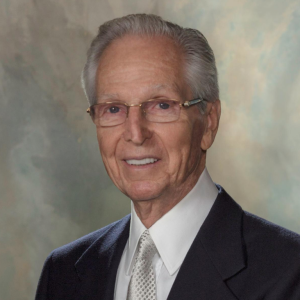J. Eustace Wolfington is a native of Philadelphia, Pennsylvania, and has enjoyed a career marked with significant global entrepreneurship and service leadership in the realm of various business enterprises including the automotive industry, for-profit and nonprofit enterprises, education, and philanthropy.
Before turning his focus to producing films with strong moral messages, Eustace made his mark as a trailblazer in the automobile retail leasing business. As the owner and operator of a thriving Chevrolet dealership in West Philadelphia, he recognized the need for innovation in the car sales industry. This led him to establish Half-A-Car, an automotive consulting firm based in Pennsylvania. Over the course of four decades, his pioneering “Half-A-Car” concept transformed the retail auto industry, ultimately being implemented in more than 4,000 dealerships worldwide.
After the successful sale of Half-A-Car in 2000, Mr. Wolfington continued to pursue entrepreneurial ventures while devoting significant time, resources, and leadership to Catholic institutions and charitable causes, particularly in the Philadelphia area. He founded Cabrini Asset Management, a family office located in King of Prussia, PA, as a vehicle to support these efforts.
A devoted husband, father, and grandfather, Mr. Wolfington is the patriarch of a large family, with ten children, thirty-three grandchildren, and three great-grandchildren. In 2005, combining his passion for storytelling and moral values, Mr. Wolfington served as executive producer for the acclaimed film Bella. The movie, which won the People’s Choice Award for Best Picture at the 2007 Toronto Film Festival, was widely praised for its heartwarming message and universal appeal.
A dedicated follower of Saint Frances Xavier Cabrini, Mr. Wolfington has since committed himself to ensuring her life and mission are known to the world. Moved by her legacy of selfless service—particularly to Italian immigrants in the United States—he is producing a major film project titled Cabrini. He believes that Mother Cabrini’s extraordinary life of compassion, courage, and faith is not only historically significant but also a source of inspiration for young people today and in generations to come. Mr. Wolfington envisions the film Cabrini as a vehicle for reviving and spreading her message of hope, service, and divine love. He passionately encourages the Italian-American community to embrace and promote the film as a testament to their heritage and to help amplify Mother Cabrini’s timeless call: “to spread love throughout the universe, especially to those who are in need of it.”




